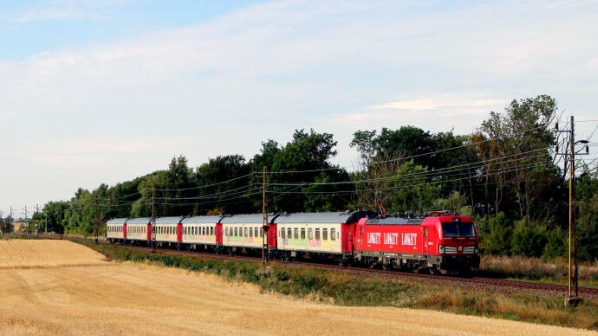ON June 27, a new night train service provided by Swedish long-distance private operator Snälltåget will depart from Stockholm to Berlin. It will be the first night train that runs in regular traffic between Sweden, Denmark and Germany since the 1990s.
On June 15, Midnight Trains announced plans to offer night trains between France and other countries, and on the same day, two other new entrants, Midnight Express and European Sleeper, announced plans to pool their respective efforts to offer a Brussels - Amsterdam - Berlin - Prague overnight service.
Clearly, private investors believe in night trains, and this will lead to modal shift. But more night time routes could be commercially viable if only the high barriers to entry were removed.
Night trains will not grow unless they are demand driven and passenger centric. The default setting should be commercially driven open-access, which by operating in an innovative market, will ensure operators can adapt to changing mobility needs.
The EU and its member states are best placed to remove the barriers to entry by:
- reducing track access charges on a permanent basis, in line with recent EU Regulation 2020/1429
- enabling fair access to rolling stock: non-discriminatory financing conditions for lease or acquisition while usable second-hand rolling stock must be made available, and
- introducing “impartial retail”. That means making all night trains services easy to search and book through all rail ticket sales channels.
If cross-border night trains can be done in a commercial manner, as Snälltåget and others plan to demonstrate, it makes no sense for some member states to close any potential market by paying a subsidy to the dominant operator. The Netherlands is a good example of how not to do it with the government already paying subsidies to incumbents Netherlands Railways (NS) and ÖBB Nightjet.
Such preferential treatment means that incumbents in collaboration with Austrian Federal Railways (ÖBB) believe they will be in pole position to win all the major night train PSOs in any competitive tender. Alternatively, they may yet follow ÖBB Nightjet’s strategy and get them directly awarded, which still possible until 2023.
Coupled with the fact that any night train PSO will kick out any future open-access night train on the same route due to the Economic Equilibrium Test, it is no wonder that incumbents are lobbying so hard for night train PSOs right now: it is not because they want to serve passengers or achieve modal shift, it is a major attempt at protectionism.
Alas, unjustified PSOs for long-distance rail traffic will stifle the innovation necessary to take on other less sustainable transport modes. EU member states that are now suggesting cross-border PSOs for long distance passenger rail (including night trains) might be thinking that this is just a temporary solution necessary to get the connections started. However, they will find that once the PSO begins, it will be extremely hard to turn back the clock: public money will scare off any private investment by new entrants, leaving member states entirely dependent on incumbents for night trains which, in turn, have no intention of ever transferring to open-access. This is a huge risk that must be averted.
Instead, top priority must be given to facilitate the conditions for more open-access by embracing the three points above. Only then will the conditions be right to secure meaningful modal shift.

